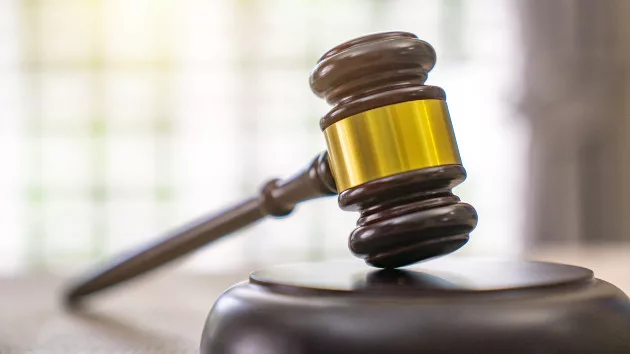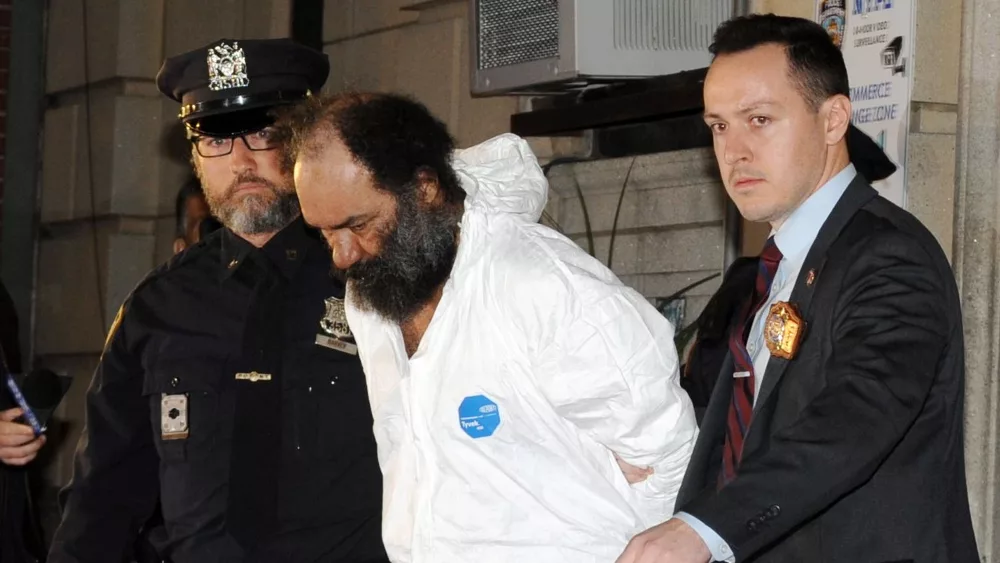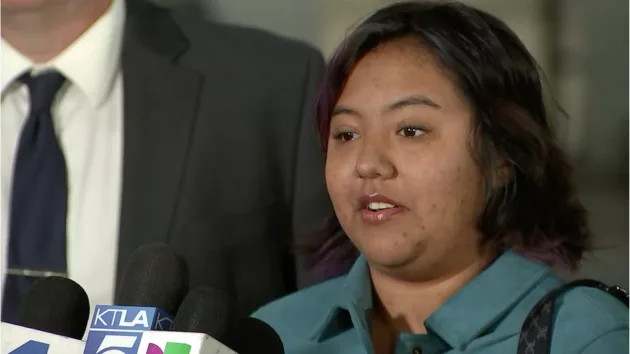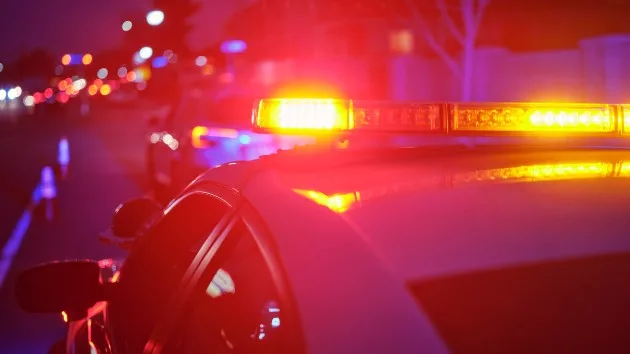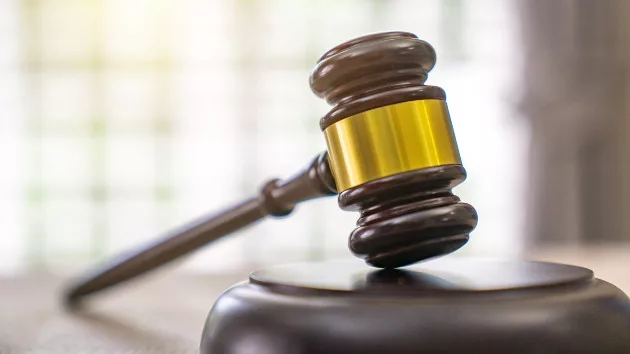(NEW YORK) — A grand jury in Palm Beach County on July 19, 2006, heard from two alleged underage victims of Jeffrey Epstein, two police officers and an investigator with the state’s attorney’s office in a proceeding that lasted less than four hours, according to newly unsealed transcripts released by a judge in Florida.
During the testimony of the two alleged victims, each was confronted with questions about whether they understood that they had engaged in prostitution and could be charged with a crime, according to the newly released transcripts.
“It was just atrocious the way they handled it,” said Spencer Kuvin, an attorney who represented one of the alleged underage victims who testified. “They basically tanked their own case.”
The previously secret testimony was made public on Monday in response to a motion from the Palm Beach Post, joined by numerous other news agencies. Earlier this year, the Florida legislature passed a new law tailored to ensure that the Epstein documents were made public because of the intense public interest in understanding how the grand jury returned an indictment of Epstein on just a single charge of solicitation of prostitution. The transcript of the grand jury proceedings, however, does not indicate what charging options were presented to grand jurors before they reached their decision.
The grand jury was convened in 2006 by then State’s Attorney Barry Krischer, who had for months resisted efforts by the Palm Beach Police Department to charge Epstein with multiple felonies for his alleged sexual exploitation of underage girls.
The opening witness before the grand jury was Palm Beach Police Detective Joseph Recarey, who led the investigation of Epstein and interviewed more than a dozen alleged underage victims. Recarey recounted the onset of the investigation when the stepmother of a 14-year-old girl reported that her daughter had received $300 to massage an older man on Palm Beach Island.
Prosecutors then called that teen girl, who had since turned 15. She testified that she went once to Epstein’s mansion the previous year. She said she was asked by Epstein’s assistant to strip down to her underwear and to wait for Epstein to enter the room. She said she massaged Epstein and then, at his request, agreed to allow him to use a vibrator on her for an extra $100. She admitted that she lied and told Epstein that she was 18. Her parents found out about her trip to Epstein’s, she said, because she had gotten into an altercation at school and the money was found in her purse.
During her testimony, prosecutors asked the girl about her drug and alcohol use, body piercings and postings on her MySpace page in which she boasted of shoplifting and lied about her age and her income, claiming to make $250,000.
“Yeah, it’s a joke,” she testified. “Like, all my friends do that, cause it’s kind of funny and random and stupid.”
A juror then asked the witness if she had “any idea deep down inside of you that…what you’re doing is wrong?”
“Yeah, I did,” she answered.
“And you’re well aware that what you’re doing to your own reputation,” the juror asked.
“Yes, I do,” she recalled.
A prosecutor, Lanna Belohlavek, then asked the 15-year-old witness: “You aware that you committed a crime?”
“Now I am. I didn’t know it was a crime when I was doing it,” she replied. “Now, I guess it’s prostitution or something like that.”
Reading those exchanges on Monday, Kuvin — who represented the witness during the Epstein investigation — said he was appalled but not surprised.
“It just reaffirmed what we always knew was happening is that the state attorney was afraid to prosecute him, and that they tanked their own case by attacking their own witnesses during the grand jury proceeding,” he said. “It was almost like the grand jury proceeding was an attempt to prosecute the teenagers and ignore Epstein.”
In subsequent testimony, Detective Recarey, who died in 2018, recounted the now familiar deviant scheme in which Epstein enlisted his assistants and his alleged victims to recruit other underage girls to his homes for illicit massages. Recarey told the grand jury that two alleged victims had intercourse with Epstein without their consent while under the age of 18.
One alleged victim, Recarey testified, had gone to Epstein’s mansion over 100 times, and had received $200 each time, and gifts, including a rented car for her use. He testified that on one occasion, Epstein had intercourse with her without her consent.
“She screamed no,” Recarey said when asked by a grand juror if the victim had asked Epstein to stop.
Epstein stopped, apologized and paid her $1000, Recarey testified.
Belohlavek then questioned Recarey about the money the alleged victim made from all her visits to Epstein’s home.
“That day she took a thousand dollars. Let’s say it’s only $200 for a hundred times; she’s – we’re talking a lot of money she got, at a minimum, plus a car,” the prosecutor said. “Did you ask her what she did with all that money?”
“I did ask her and she didn’t want to tell me,” Recarey replied. “She said that it was too personal.”
“After you – she’s just described all these sex acts to you? Okay,” Belohlavek replied.
The only other alleged victim to testify before the grand jury said she went to Epstein’s mansion about 10 times, starting when she was 16.
“He was well aware of my age from the very beginning,” she said.
The sexual activity escalated gradually, she testified, until her last encounter when Epstein initiated intercourse. It was the day before her 18th birthday, she said. She testified that she did not want to have intercourse with him but did not ask him to stop.
The young girl said she was reluctant to testify and didn’t really know if she wanted to see Epstein prosecuted.
“You understand that you in effect were committing prostitution yourself,” a prosecutor asked.
“Yes,” the witness replied.
The final witness of the day was an investigator with the state’s attorney’s office who was guided through testimony covering the backgrounds of the alleged teen victims, including shoplifting, arrests, drinking and drug use. The investigator was also questioned about the MySpace pages of the alleged 14-year-old victim. Much of that information had been provided to the prosecutor by Epstein’s defense attorneys in an attempt to dissuade the office from bringing charges.
“And does her website also include pictures of her in skimpy attire, drinking alcohol and sexually provocative photos?” the witness was asked.
“Yes, ma’am,” he replied.
Following this grand jury’s indictment on one charge of solicitation of prostitution — with no mention of minor victims — Epstein was arrested, booked and released on bond. The outcome of the grand jury incensed then Palm Beach Police Chief Michael Reiter, who publicly apologized to the victims and turned over the case to the FBI. Two years later, federal prosecutors crafted a deal with Epstein that allowed him to escape federal prosecution in exchange for his guilty plea to the original grand jury indictment plus one additional charge of soliciting a minor into prostitution. He served 13 months of an 18-month sentence in a private wing of the Palm Beach County stockade. Epstein was also allowed liberal work release, which permitted him to spend up to 16 hours a day at his office in West Palm Beach.
Following Epstein’s 2019 arrest in New York, Krischer pushed back on claims that his handling of the case more than a decade earlier had forced federal prosecutors to enter into that infamously lenient deal with Epstein.
“No matter how my office resolved the state charges, the U.S. Attorney’s Office always had the ability to file its own federal charges,” Krischer said in a statement at the time.
Copyright © 2024, ABC Audio. All rights reserved.


